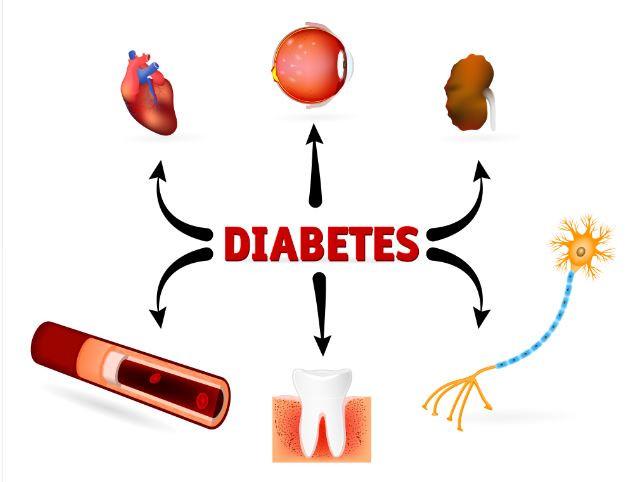
For our August 3rd Question of the Week, 53% of respondents chose the best answer. We want to “take a closer look” at this question and determine strategies to choose the best response.
Before we start though, if you don’t want any spoilers and haven’t tried the question yet, you can answer below: Answer Question
Question 1: JR is 53 years old with type 2 diabetes for the past 7 years. JR’s BMI is 32, GFR is more than 60, blood pressure is 128/76, Urinary Albumin Creatinine Ratio (UACR) is 17mg/g.
According to the ADA Standards, which of the following is the most accurate recommendation to continue to protect JR’s kidney function?
Answer Choices:
- Initiate low dose ACE Inhibitor or ARB
- Focus on lifestyle changes
- Maintain protein intake to ~0.7 g/kg
- Reduce sodium intake to 1000 mg per day
As shown above, the most common choice was option 2, the second most common answer was option 3, then option 4, and finally option 1.
Getting to the Best Answer
If you are thinking about taking the certification exam, the content of this practice test question will set you up for success. Don’t forget to leverage your common sense and vast health care knowledge to get the best answer for these specialty topics like diabetes kidney disease. Be familiar with MNT guidelines and guidelines for best therapeutic intervention based on careful assessment of microvascular health. You got this, Coach Beverly
Answers & Rationale
Answer 1 is incorrect, 32% chose this answer, “Initiate low dose ACE Inhibitor or ARB.” This is a juicy answer, however, based on the ADA Standards on Microvascular Complications, medication is not required.
Here are 3 reasons why JR does not need an ACE or ARB:
- JRs GFR is more than 60, indicating acceptable kidney function.
- His B/P is below the most stringent target of 130/80.
- His UACR is normal, at less than 30.
Since all three of these indicators are below target range, blood pressure medication is not warranted and could even cause unwanted side effects like orthostatic hypotension. About a decade ago, there was a recommendation to start people with type 1 on an ACE or ARB to protect the kidney function, but it is NO longer recommended because it did not improve outcomes.
Answer 2 is correct, 53% of you chose this answer, “Focus on lifestyle changes.” YES, GREAT job. To help JR to keep his vessels healthy and improve his overall nutrition, we are going to encourage regular activity and an evidence based nutrition approach (DASH diet, Mediterranean, Plant Based eating etc.). We will make sure JR has an appointment with a diabetes care and education specialist and RD/RDN. No medications needed for JR, just ongoing self-care support and encouragement.
Answer 3 is incorrect, 9% of you chose this answer, “Maintain protein intake to ~0.7 g/kg.” In the old days, we used to recommend restricting protein intake to less than 0.8g/kg for people with diabetes kidney disease. We no longer make this recommendation since it didn’t improve outcomes! Plus, JR’s kidney function is fine and there is no diabetes kidney disease based on the information provided.
Answer 4 is incorrect, 6% of you chose this answer “Reduce sodium intake to 1000 mg per day.” For people with diabetes, the sodium recommendation is 2,300 mg per day, regardless of their blood pressure, since there is no evidence that a lower sodium intake reduces risk of complications.
We hope you appreciate this week’s rationale! Thank you so much for taking the time to answer our Question of the Week and participate in this fun learning activity!
Want to learn more about this topic? Enroll in our
Join us for our
Level 2 | Microvascular Complications, Eye Kidney, & Nerve Disease Standards | 1.5 CEs

This course provides you with the need-to-know information regarding the microvascular complications of diabetes. We start with a brief overview of the pathophysiology and clinical manifestations then sum up with prevention strategies and screening guidelines. This straight-forward program will provide you with information you can use in your clinical setting and also provides critical content for the diabetes educator exam.
Objectives:
- Eye, kidney and nerve disease
- Modifiable and non-modifiable risk factors for diabetes complications
- Screening guidelines and prevention strategies.
See Full Calendar for upcoming webinars and events.
Can’t make it live? All paid registrants are guaranteed access to the video presentation, handouts and podcasts.
Sign up for Diabetes Blog Bytes – we post one daily Blog Byte from Monday to Friday. And of course, Tuesday is our Question of the Week. It’s Informative and FREE! Sign up below!
[yikes-mailchimp form=”1″]Accreditation: Diabetes Education Services is an approved provider by the California Board of Registered Nursing, Provider 12640, and Commission on Dietetic Registration (CDR), Provider DI002. Since these programs are approved by the CDR it satisfies the CE requirements for the CDCES regardless of your profession.*
The use of DES products does not guarantee the successful passage of the CDCES exam. CBDCE does not endorse any preparatory or review materials for the CDCES exam, except for those published by CBDCE.









